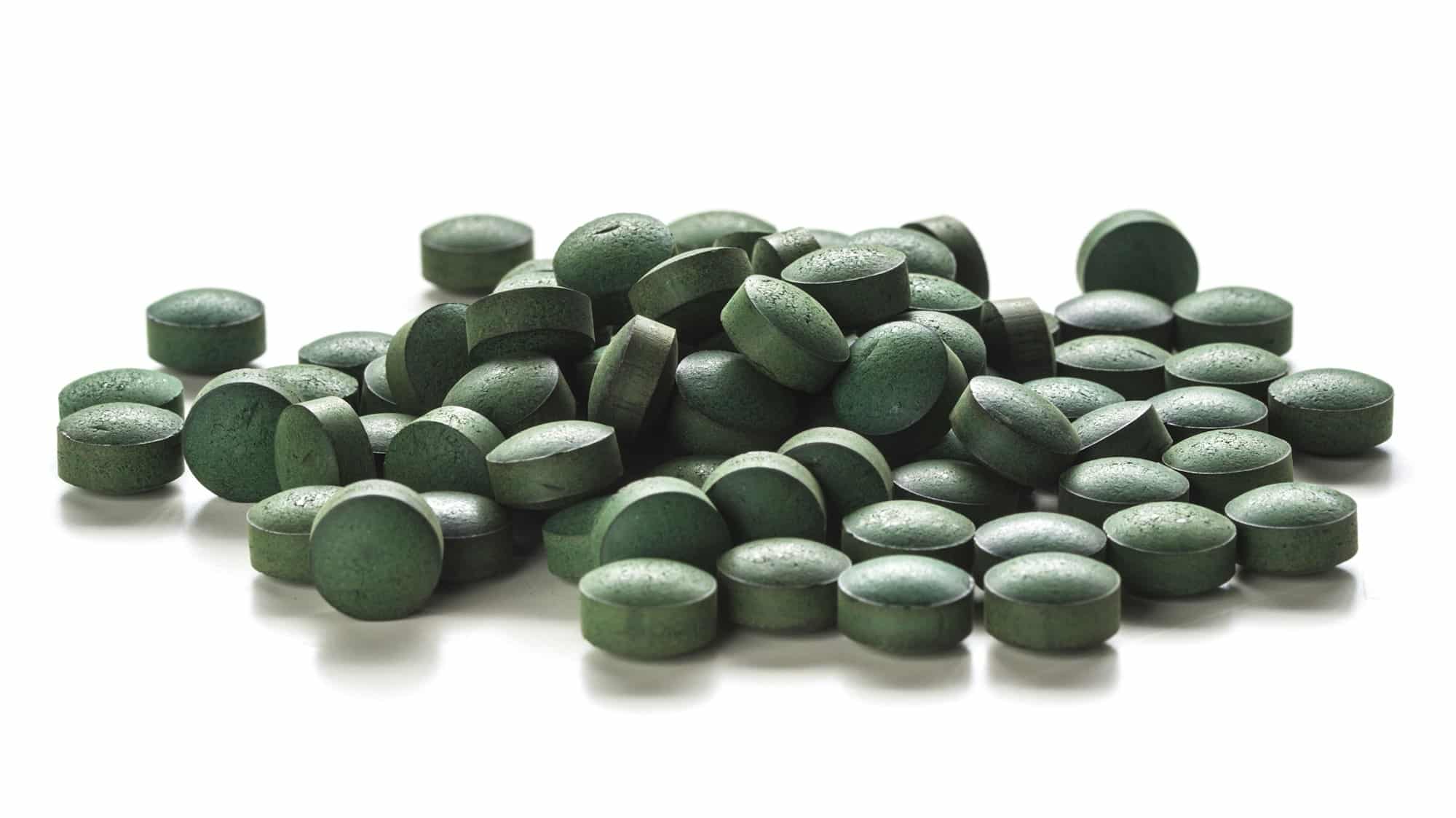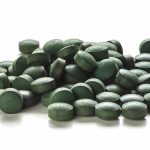Spirulina is more than a trendy superfood; it’s a powerhouse of immune-boosting benefits, especially for UK vegans. Packed with essential nutrients, this blue-green algae enhances overall health and strengthens the body's defenses. Curious about how spirulina can fit into a vegan lifestyle? Discover its remarkable properties and practical ways to incorporate it into your daily routine. Your journey toward better health starts here.
Overview of Spirulina
Spirulina, a type of blue-green algae, has been consumed for centuries due to its numerous health benefits. Originating in warm, alkaline waters, it was initially harvested by the Aztecs and other ancient civilizations. Today, it is renowned for its impressive nutritional profile.
Additional reading : Unlocking Brain Power: The Impact of Musical Instrument Learning on Cognitive Abilities in the Elderly of the UK
Nutritional Information
Spirulina is a powerhouse of nutrients, providing a rich source of protein, vitamins, and minerals. It contains essential amino acids, making it a complete protein source. Additionally, spirulina is abundant in vitamins B1, B2, and B3, as well as iron, magnesium, and potassium. These components contribute significantly to its health benefits.
Algae Health Benefits
The health benefits of spirulina are diverse. It is known to boost the immune system, improve gut health, and enhance endurance. Its high antioxidant content helps combat oxidative stress, reducing inflammation in the body. Furthermore, spirulina may aid in lowering cholesterol levels and improving heart health. Regular consumption of spirulina can also support healthy weight management by promoting a feeling of fullness.
Also to see : How Embracing a Flexitarian Diet Can Lower Your Carbon Footprint in the UK
Incorporating spirulina into your diet can be a simple yet effective way to harness the myriad of algae health benefits it offers. Whether taken as a supplement or added to smoothies, spirulina is a versatile addition to a balanced diet, contributing to overall wellbeing.
Immune Support from Spirulina
Spirulina is renowned for its ability to bolster immune function. This blue-green algae enhances the body's immune response by stimulating the production of antibodies and cytokines, essential components in fighting infections. Its rich nutrient profile, particularly its high concentration of antioxidants, plays a crucial role in supporting immunity.
Spirulina Immune Benefits
The antioxidant properties of spirulina are significant in protecting cells from damage caused by free radicals. These antioxidants, including phycocyanin and beta-carotene, help reduce oxidative stress, which can otherwise weaken the immune system. By neutralising harmful free radicals, spirulina supports the body's natural defence mechanisms, promoting better health and resilience against diseases.
Scientific Studies
Numerous scientific studies have validated the immune benefits of spirulina. Research has shown that regular consumption of spirulina can increase the activity of natural killer cells and macrophages, both vital for a robust immune response. A study published in the Journal of Medicinal Food highlighted spirulina's potential in enhancing immune function, particularly in older adults. These findings underscore spirulina's effectiveness as a natural supplement for boosting immunity.
Incorporating spirulina into your daily routine can be an effective strategy for enhancing your body's immune function, thanks to its potent antioxidant properties and scientifically-backed benefits.
Nutritional Advantages for Vegans
For those following a vegan lifestyle, spirulina offers numerous nutritional benefits that are hard to overlook. As a rich source of plant-based protein, spirulina stands out by providing all essential amino acids, making it a complete protein source. This is particularly beneficial for vegans, who often need to combine different foods to meet their protein requirements.
In comparison to other plant-based protein sources, spirulina is exceptionally high in protein content, with about 60-70% of its dry weight being protein. This surpasses common sources like lentils and chickpeas, offering a convenient and efficient way to boost protein intake. Additionally, spirulina is packed with essential nutrients such as iron, which is crucial for vegans who might otherwise struggle to meet their iron needs through diet alone.
Incorporating spirulina into a balanced vegan diet can significantly enhance nutritional intake. Its abundance of vitamins and minerals, including B vitamins, magnesium, and potassium, supports overall health and wellbeing. For vegans, spirulina not only fills nutritional gaps but also contributes to a more varied and nutrient-dense diet, ensuring that dietary needs are met without compromising on ethical or dietary choices.
Dosage Recommendations
Understanding the correct spirulina dosage is crucial for maximising its benefits. The recommended daily intake varies, but generally, a spirulina serving size of 1 to 3 grams is suitable for most individuals. However, some studies suggest that doses up to 10 grams per day can be beneficial, particularly for specific health goals.
Several factors influence how much spirulina one should consume. Age, overall health, and activity level are significant considerations. For instance, athletes or individuals with higher physical demands might require a larger spirulina dosage to support their energy needs and recovery processes. Conversely, those with specific health conditions should consult a healthcare professional before adjusting their intake.
Incorporating spirulina into your daily routine can be straightforward. Here are some best practices:
- Start with a lower dose and gradually increase it to assess your body's response.
- Mix spirulina powder into smoothies, juices, or water for easy consumption.
- Consider spirulina tablets or capsules if you prefer a more convenient option.
By understanding the appropriate spirulina serving size and considering individual needs, you can effectively integrate this powerful supplement into your lifestyle, ensuring you reap its full range of health benefits.
Potential Side Effects and Considerations
When considering the safety of spirulina, it's essential to be aware of potential side effects and contraindications. While spirulina is generally safe for most people, some individuals may experience mild digestive issues, such as nausea or an upset stomach. These symptoms are typically temporary and can be minimized by starting with a smaller dose.
Individuals with allergies or specific health conditions should exercise caution. Spirulina may cause allergic reactions in those sensitive to algae or seafood. Moreover, people with autoimmune diseases should consult a healthcare professional before using spirulina, as it can stimulate the immune system, potentially exacerbating symptoms.
The safety of spirulina also depends on its quality. Contaminated spirulina, often sourced from polluted waters, can contain harmful substances like heavy metals or bacteria. To ensure safety, choose high-quality spirulina from reputable brands that conduct thorough testing.
In summary, while spirulina offers numerous health benefits, being mindful of potential spirulina side effects and contraindications is vital. By sourcing high-quality spirulina and considering individual health conditions, you can safely incorporate this supplement into your diet.
Where to Buy Spirulina in the UK
When looking to buy spirulina in the UK, you have a variety of options, both online and in local stores. Popular online spirulina retailers include Amazon, Holland & Barrett, and The Health Store, which offer a wide range of products. These platforms often provide customer reviews, helping you make informed decisions. Local health food shops and supermarkets also stock spirulina, giving you the chance to see the product before purchasing.
Tips for Choosing High-Quality Spirulina
To ensure you're getting a high-quality product, consider these tips:
- Check the source: Opt for spirulina sourced from reputable regions known for clean water and sustainable practices.
- Look for certifications: Choose products with organic or quality assurance certifications to ensure purity.
- Read reviews: Online spirulina platforms often feature customer feedback, offering insights into product effectiveness and taste.
Price Ranges and Value Comparison
The cost of spirulina in the UK can vary significantly. Generally, prices range from £10 to £30 for a month's supply, depending on the brand and form (powder, tablets, or capsules). While higher-priced spirulina often indicates better quality, compare product details and reviews to ensure you're getting good value for your money.
Usage Tips for Spirulina
Incorporating spirulina into your diet can be both simple and versatile, thanks to its availability in various forms such as powder, tablets, and capsules. Understanding how to use spirulina effectively can enhance your nutritional intake and daily routine.
Different Forms of Spirulina
Spirulina is commonly available as a powder, which can be easily mixed into smoothies, juices, or water. This form is ideal for those who enjoy experimenting with recipes. Tablets and capsules offer a convenient alternative for individuals who prefer straightforward supplementation without altering their meals.
Best Practices for Mixing Spirulina
To optimise spirulina usage, start by adding small amounts to your favourite beverages. Gradually increase the quantity to allow your taste buds to adjust. When using spirulina powder, ensure it is well-blended to avoid clumping. For a refreshing twist, try mixing spirulina into homemade salad dressings or sauces.
Creative Ways to Incorporate Spirulina
Spirulina's versatility extends to various culinary creations. Enhance your breakfast by adding spirulina to pancake or waffle batter. For lunch, sprinkle spirulina over avocado toast or incorporate it into a vibrant green hummus. These creative approaches not only boost your meals' nutrient content but also make spirulina a delightful addition to your daily diet.
Spirulina Recipes for Vegans
Incorporating spirulina into your vegan meals can be a delightful way to boost nutrition while exploring new flavours. Whether you're a seasoned cook or just starting, there are numerous spirulina recipes to try.
Simple Smoothie Recipes Featuring Spirulina
Smoothies are a fantastic way to enjoy spirulina's benefits. For a refreshing start, blend a banana, a handful of spinach, a cup of almond milk, and a teaspoon of spirulina. This simple concoction is not only nutritious but also delicious. Alternatively, try a tropical twist with mango, pineapple, coconut water, and spirulina for a vibrant, energising drink.
Vegan Dishes Enhanced with Spirulina
Spirulina can elevate various vegan dishes. Add a teaspoon to your favourite hummus recipe for a protein-packed dip. For a hearty meal, mix spirulina into a quinoa salad with cherry tomatoes, cucumber, and avocado. The subtle flavour of spirulina complements the freshness of these ingredients, creating a balanced and satisfying dish.
Creative Snack Ideas Using Spirulina
Spirulina can be a star ingredient in creative snacks. Consider making spirulina energy balls by combining dates, almonds, oats, and spirulina. These bite-sized treats are perfect for on-the-go snacking. Alternatively, sprinkle spirulina over popcorn for a unique and nutritious twist on a classic snack.
Expert Opinions and Research on Spirulina
Spirulina has drawn significant attention from scientists and nutritionists alike, leading to a wealth of spirulina research. Notable studies have explored its potential in various health domains. For instance, research published in the Journal of Medicinal Food highlights spirulina's role in enhancing immune function, particularly in older adults. This study underscores the algae's potential as a natural supplement for boosting immunity.
Scientific studies spirulina have delved into its antioxidant properties, suggesting that regular consumption can reduce oxidative stress, thus supporting overall health. Nutritionists often praise spirulina for its high protein content and rich nutrient profile, making it a valuable addition to a balanced diet. They emphasise its benefits for vegans and individuals looking to enhance their nutritional intake.
Future spirulina research is poised to explore its potential in areas such as cardiovascular health, weight management, and even mental well-being. Experts anticipate that ongoing studies will further validate spirulina's health benefits, paving the way for new applications. As scientific interest in spirulina continues to grow, it remains a promising subject in the field of nutrition and health, with potential benefits that extend beyond current understanding.











